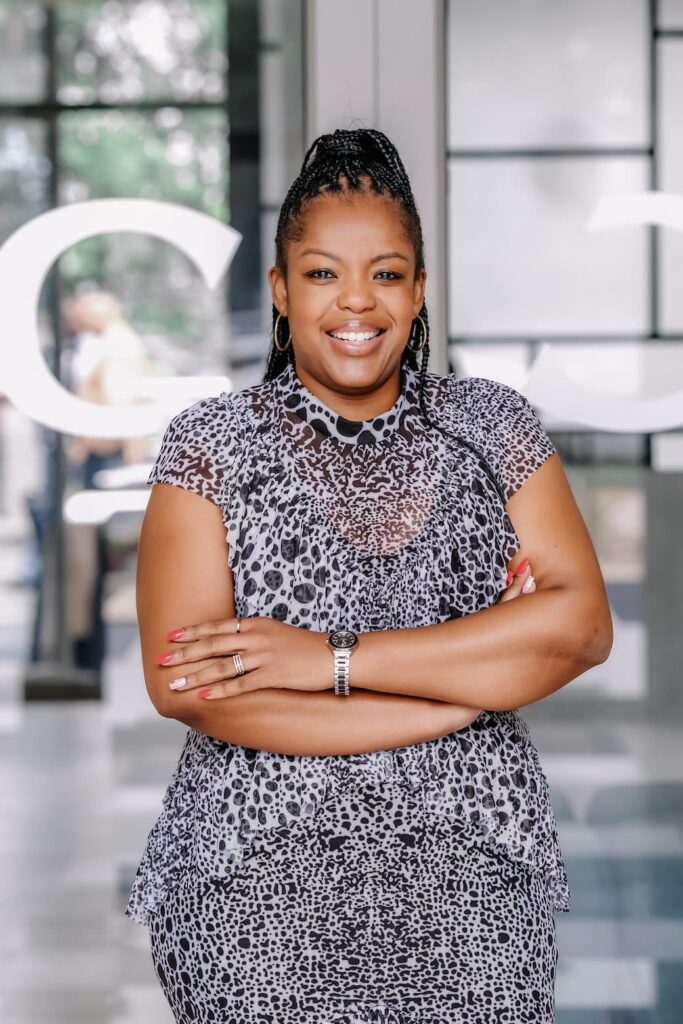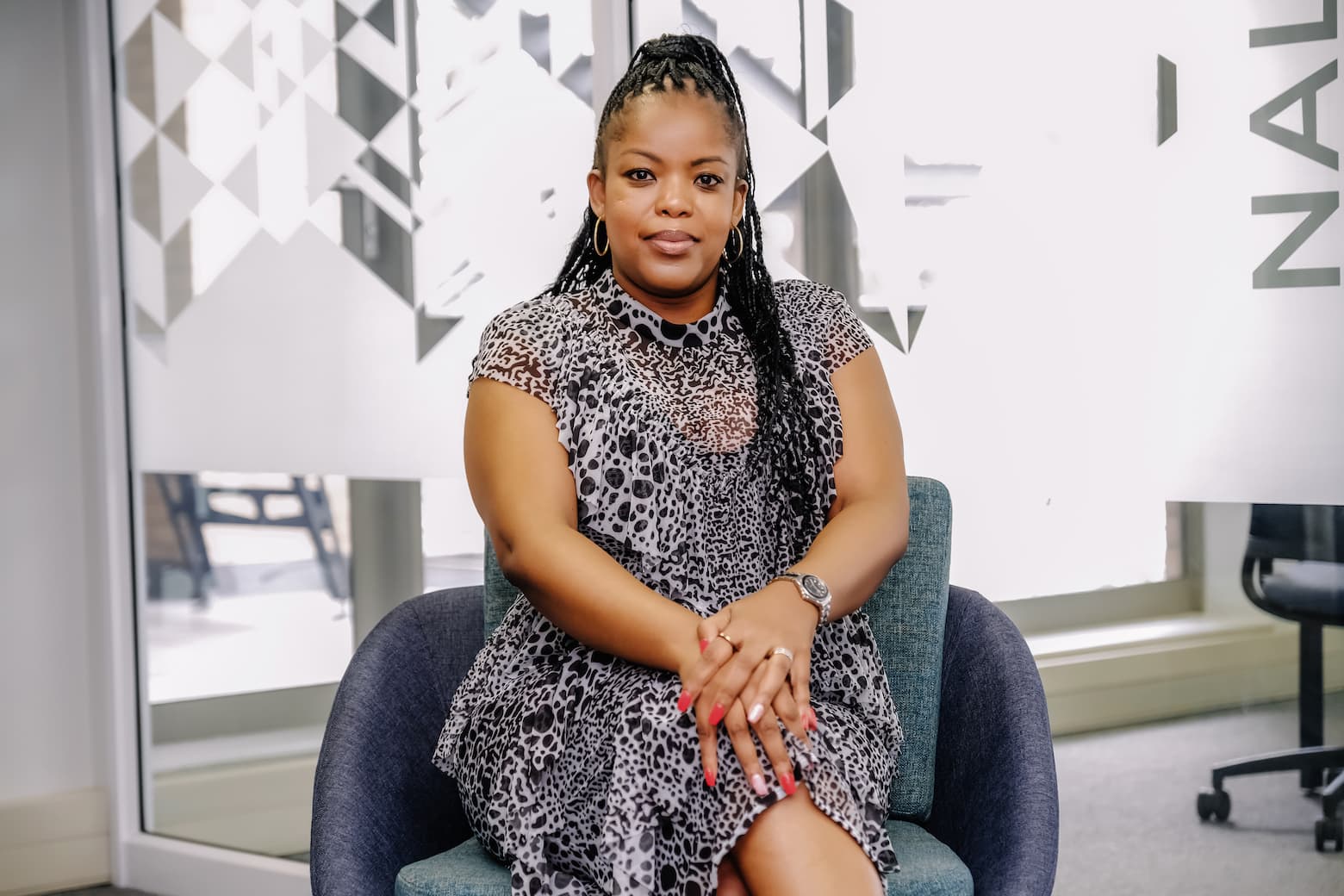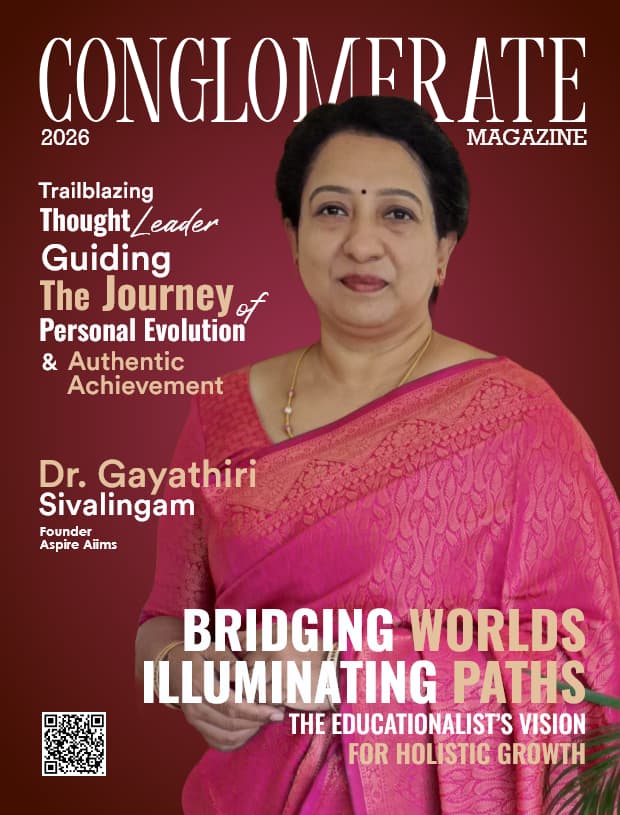I was inspired by the idea that financial services, when delivered with empathy and innovation, could uplift communities and empower individuals to build generational wealth.
In the bustling corridors of South African financial services, where tradition often meets resistance to change, Ayanda Ndlovu stands as a beacon of what happens when vision meets purpose. Her journey into leadership wasn’t born from corporate ambition alone, but from a profound understanding of financial services as a tool for societal transformation.
Growing up, Ayanda witnessed firsthand how financial literacy and access could reshape entire communities. This early exposure to the transformative power of financial inclusion planted seeds that would eventually bloom into a career dedicated to creating meaningful change. “I was inspired by the idea that financial services, when delivered with empathy and innovation, could uplift communities and empower individuals to build generational wealth,” she reflects, her voice carrying the conviction that has driven decades of purposeful leadership.
This foundational belief became more than just a career motivation; it evolved into the cornerstone of her entire professional philosophy. Where others saw financial products, Ayanda envisioned pathways to prosperity. Where others saw market segments, she saw communities waiting to be empowered.
THE EVOLUTION OF AUTHENTIC LEADERSHIP
Ayanda’s leadership style tells a story of continuous evolution and deepening wisdom. What began as a more directive approach has transformed into something far more powerful: a collaborative and empowering methodology rooted in authenticity, strategic foresight, and servant leadership principles.
“I believe in creating environments where people feel seen, heard, and valued—where they can bring their full selves to the table,” Ayanda explains, describing a leadership philosophy that recognizes the full humanity of every team member. This approach represents a fundamental shift from traditional command-and-control structures to something more nuanced and ultimately more effective.
Her leadership philosophy centers on the delicate balance between being visionary and grounded, combining bold ambition with operational excellence. This dual focus has proven essential in the financial services industry, where regulatory complexity meets customer expectations for innovation and accessibility.
The true test of this leadership philosophy came during a period of economic uncertainty that would have challenged even the most experienced executives. Rather than adopting the conventional wisdom of retrenchment and risk aversion, Ayanda made the bold decision to double down on innovation and customer-centricity.
STRATEGIC COURAGE IN UNCERTAIN TIMES
When economic headwinds threatened to derail progress across the South African insurance market, Ayanda faced a defining moment that would establish her reputation as a strategic thinker willing to take calculated risks for long-term success. The conventional response would have been to retreat, cut costs, and wait for better conditions.

Instead, she chose a path that required both courage and conviction. The decision to pivot market strategy during this challenging period involved restructuring offerings to better serve SMEs and emerging markets. This wasn’t merely a tactical adjustment; it represented a fundamental reimagining of how financial services could remain relevant and valuable during times of volatility.
The results spoke volumes about the power of customer-centric innovation over defensive positioning. Not only did this strategy stabilize the business during uncertain times, but it also positioned the organization as a trusted partner when clients needed support most. This strategic courage established Ayanda as a leader who could navigate complexity while maintaining focus on long-term value creation.
REVOLUTIONIZING DISTRIBUTION THROUGH DECENTRALIZATION
Ayanda’s approach to distribution strategy reflects her broader leadership philosophy of empowerment and localization. Rather than maintaining centralized control over all distribution decisions, she pioneered a decentralized model that empowered regional leaders to tailor solutions to their unique markets.
This localized approach represented a significant departure from traditional insurance distribution models that often applied one-size-fits-all solutions across diverse markets. By combining this decentralization with robust performance analytics, Ayanda created a system that could deliver both local relevance and organizational accountability.
The results were transformative. The combination of empowered local decision-making and data-driven insights drove significant growth while improving client retention rates. More importantly, it demonstrated that empowering people closest to customers could generate better outcomes than top-down directive management.
BRIDGING TRADITION AND DIGITAL TRANSFORMATION
Understanding that the future of financial services distribution lay at the intersection of human relationships and technological innovation, Ayanda led initiatives that seamlessly integrated traditional face-to-face models with digital expectations of modern consumers.
The integration of AI-driven insights and mobile-first tools wasn’t pursued for its own sake, but as a means to enhance advisor productivity, streamline onboarding processes, and personalize client engagement. This thoughtful approach to technology adoption ensured that digital transformation served human needs rather than replacing human connections.
One of the most impactful innovations under Ayanda’s leadership was the launch of a digital claims tracking system. This initiative exemplified her approach to customer-centric innovation by addressing a real pain point in the customer experience. The system not only improved transparency but also significantly reduced turnaround times, leading to measurable increases in customer satisfaction.
“Customer data and feedback are invaluable. They inform everything from product design to service delivery,” Ayanda explains, describing how real-time feedback loops and sentiment analysis tools ensure organizational agility and responsiveness to changing customer needs.
THE SCIENCE AND ART OF TEAM BUILDING
Leading large, diverse teams across the South African insurance market has taught Ayanda that culture serves as the ultimate differentiator in competitive industries. Her approach to team building rests on three foundational principles: clarity, trust, and recognition.
Setting clear expectations provides the framework within which creativity and innovation can flourish. Fostering psychological safety ensures that team members feel comfortable bringing their full selves to work and contributing their unique perspectives. Celebrating both individual and collective wins creates an environment where motivation thrives through connection to shared purpose.
This approach to team building becomes particularly important within tied agency structures, where talent development requires intentional investment and strategic thinking. Ayanda’s organizations invested heavily in mentorship programs, continuous learning opportunities, and leadership pipelines that aligned career progression with business goals.
IDENTIFYING AND NURTURING EMERGING LEADERS
When asked about identifying emerging leaders, Ayanda focuses on qualities that transcend technical skills and experience levels. “I look for curiosity, resilience, and emotional intelligence. Technical skills can be taught, but character and drive are foundational,” she explains.
This perspective reflects a deeper understanding of leadership development that goes beyond traditional promotion criteria. By offering high-potential individuals stretch assignments and visibility opportunities, Ayanda creates accelerated development paths that benefit both individuals and organizations.
Her mentorship approach recognizes that developing next-generation leaders requires more than formal training programs. It demands personal investment, honest feedback, and the willingness to share opportunities that could accelerate career development.
OVERCOMING BARRIERS WITH GRACE AND DETERMINATION
As a woman navigating the financial services sector, Ayanda has encountered challenges ranging from unconscious bias to underrepresentation in decision-making spaces. Her response to these obstacles demonstrates the strength of character and strategic thinking that defines transformational leaders.
Rather than allowing these challenges to limit her impact, Ayanda focused on building strong support networks, staying grounded in her values, and continuously delivering results that spoke for themselves. More importantly, she made advocating for other women a priority, ensuring that the doors she walked through remained open for those following behind her.
“I made it a point to advocate for other women, ensuring that the doors I walked through remained open for those behind me,” she reflects, describing an approach to personal success that inherently includes lifting others.
This commitment to opening pathways for others extends beyond individual relationships to organizational policies and practices. Under Ayanda’s influence, organizations have implemented bias-free recruitment practices, leadership diversity targets, and inclusive training programs that ensure diverse teams can drive better innovation and reflect the markets they serve.
NAVIGATING TRANSFORMATION WITH TRANSPARENCY
During periods of organizational transformation or restructuring, Ayanda has learned that maintaining morale requires both art and science. Transparent communication, empathy, and clear vision serve as essential tools for guiding teams through periods of uncertainty and change.
“I’ve found that when people understand the ‘why’ behind change and feel supported through the process, they are more likely to stay engaged and productive,” she explains, describing an approach that treats change management as fundamentally about human psychology and emotional intelligence.
This approach to transformation management recognizes that people need more than just information about changes; they need context, support, and genuine care from leadership during transitions that can feel threatening or uncertain.
HIGH-PRESSURE DECISION MAKING WITH WISDOM
Ayanda’s approach to high-pressure decision making reflects the wisdom gained through years of navigating complex situations with significant consequences. Rather than relying solely on data or intuition, she has developed a methodology that combines multiple perspectives and deliberate reflection.
“I rely on a combination of data, intuition, and consultation. I’ve learned to pause, reflect, and seek diverse perspectives before acting,” she describes, outlining an approach that values both analytical rigor and emotional intelligence.
This decision-making framework not only leads to better outcomes but also fosters a culture of thoughtful decision-making throughout the organization. By modeling deliberate consideration of multiple perspectives, Ayanda creates environments where others feel empowered to make thoughtful decisions at their own levels.
EXPANDING FINANCIAL INCLUSION WITH DIGNITY
Among her many professional accomplishments, Ayanda takes particular pride in leading initiatives that expanded financial inclusion for underserved communities. The development of affordable funeral policies tailored for low-income households exemplifies her approach to creating products that serve both business objectives and social needs.
These policies provided dignity and security during times of loss while demonstrating that profitability and purpose can coexist. This initiative represents more than just product development; it embodies Ayanda’s conviction that financial services should serve all members of society, not just those with existing wealth and resources.
“Financial inclusion is deeply personal to me. It’s about equity, empowerment, and economic justice,” Ayanda explains, describing her commitment to designing products that meet people where they are culturally, financially, and emotionally.
This approach to financial inclusion recognizes that true accessibility requires more than just lower prices or simplified products. It demands deep understanding of community needs, cultural contexts, and the real barriers that prevent people from accessing financial services.
ENVISIONING THE FUTURE OF AFRICAN FINANCIAL SERVICES
Looking toward the future of insurance and financial services distribution across Africa, Ayanda sees a landscape that is digital, inclusive, and hyper-personalized. This vision extends beyond simple technology adoption to encompass fundamental changes in how financial services integrate with everyday life.
“We are moving toward ecosystems that integrate financial services with everyday life through mobile platforms, embedded finance, and AI-driven personalization,” she explains, describing a future where financial services become invisible yet essential components of daily activities.
The winners in this evolving landscape will be organizations that can blend technology with human touch, delivering value at scale while maintaining the trust that remains essential in financial relationships. This insight reflects Ayanda’s understanding that technological advancement must serve human needs rather than replace human connections.
BUILDING INSTITUTIONS THAT OUTLAST LEADERSHIP
Ayanda’s personal mission extends beyond individual career success to focus on building institutions that can continue creating positive impact long after her direct involvement ends. This institutional thinking reflects a mature understanding of leadership that prioritizes sustainable systems over personal recognition.
“My personal mission as a leader is to build institutions that outlast me—organizations that are values-driven, future-ready, and socially impactful,” she explains, describing an approach to leadership that focuses on systematic change rather than individual heroics.
This perspective on institutional building recognizes that true transformation requires changes that survive leadership transitions and continue evolving to meet new challenges and opportunities.
LEGACY THROUGH PATHWAY CREATION
When Ayanda reflects on the legacy she hopes to leave, her focus centers on the pathways she has created for others rather than the positions she has held or the recognition she has received. This perspective reflects a deep understanding of leadership as fundamentally about enabling others to achieve their potential.
“Legacy, to me, is about creating pathways for others. It’s about using my platform to amplify voices, challenge norms, and reimagine what’s possible,” she reflects, describing an approach to leadership that inherently includes responsibility for developing future leaders.
This commitment to pathway creation extends beyond individual mentorship to encompass broader efforts to challenge existing norms and expand possibilities for underrepresented groups in financial services leadership.
Her vision for the future encompasses leadership that is inclusive, innovation that is purposeful, and business that serves as a force for good. This holistic approach to organizational and societal impact represents the kind of thinking that will be essential as financial services continue evolving to meet complex social and economic challenges.
A CONTINUING JOURNEY OF TRANSFORMATION
Ayanda Ndlovu’s story represents more than individual success in a challenging industry. It demonstrates how purposeful leadership can create ripple effects that extend far beyond organizational boundaries to influence entire communities and industries.
Her journey from witnessing the transformative power of financial literacy to leading initiatives that expand access and opportunity illustrates the potential for business leadership to serve broader social purposes. Through her example, she has shown that empowering others, embracing inclusive innovation, and maintaining focus on long-term value creation can generate both business success and social impact.
As the financial services industry continues evolving to meet the complex needs of diverse African markets, leaders like Ayanda provide essential guidance on maintaining human focus while embracing technological advancement. Her career demonstrates that the most sustainable transformations are those that serve all stakeholders while building systems capable of continuing positive impact across generations.
The future of financial services distribution in Africa will be shaped by leaders who understand that true innovation must serve human needs, that sustainable success requires inclusive practices, and that the most important legacy is the pathway created for others to follow and exceed your impact.







